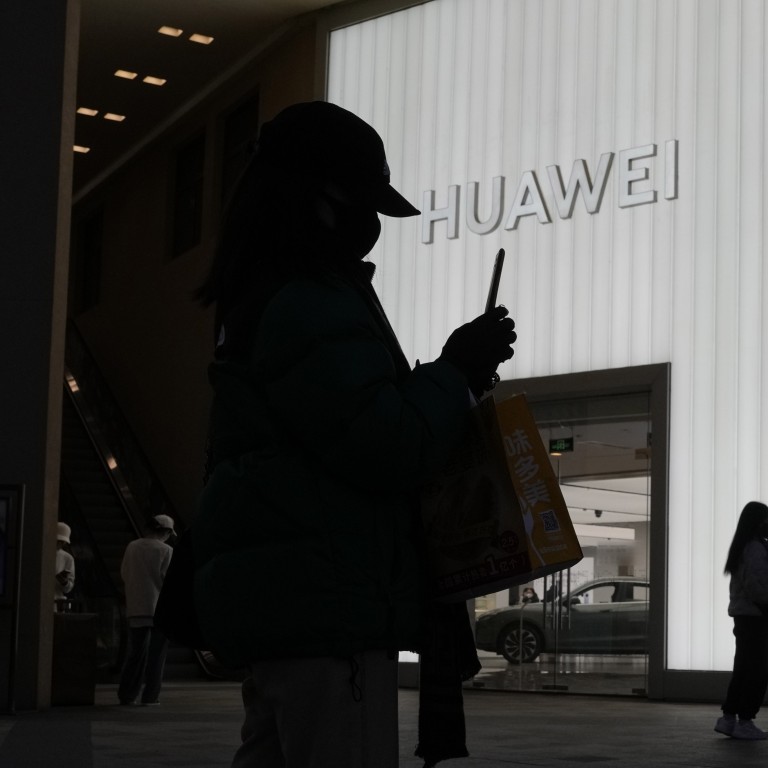
Huawei looks to Middle East and Southeast Asia for growth as headwinds in West gather strength
- Shenzhen-based Huawei and its crosstown rival ZTE are likely to lose access to the German market, according to report
- As Europe dials up its scrutiny of Chinese telecoms equipment, Huawei is expected to accelerate its push into other markets
With Huawei Technologies Co expected to face more headwinds in Europe with a potential German ban on its products and the cancellation of its plan to build a research facility in the UK, the Chinese telecoms giant will likely turn its attention to other regions, analysts say.
Shenzhen-based Huawei and its crosstown rival ZTE are likely to lose access to the German market as the country’s government mulls removing the two Chinese companies from its 5G networks, local media Zeit Online reported on Monday, citing government sources.
A spokesperson at the Chinese Embassy in Germany said China was “very perplexed at and strongly discontent” with the German government’s decision, which was likely fuelled by “anti-China forces”, according to a notice published on the Embassy’s website on Tuesday evening.
In an emailed statement on Wednesday, a Huawei Germany spokesperson cited the firm’s “security record in Germany and around the world for the past 20 years”, and called for “clear standards, certifications and verifications” to address security concerns.
Meanwhile, Huawei has reportedly shelved a plan to invest 1 billion pounds (US$1.2 billion) in a Cambridge research facility as it moves to reduce its presence in the country, according to a report by the Daily Telegraph.
Huawei’s autos partner Seres aims to sell one million EVs by 2026: report
If Germany, China’s largest trade partner in Europe, goes ahead with a ban it would mark one of the biggest setbacks for the US-sanctioned Chinese telecoms maker’s business in the region.
The potential development comes after a study late last revealed that Chinese technology underpins almost 60 per cent of the 5G networks in the largest European economy. This roused local politicians, alarmed about the country’s reliance on Chinese telecoms suppliers at a time when other European countries are looking to expel Huawei from their markets amid national security concerns.
However Xiang Ligang, founder of Chinese telecoms-focused information portal CCTime.com, says a total ban on Huawei equipment in European markets is unlikely, given the likely costs and time it would take to implement fully.
“I think it’s going to be a long time before the German government could actually execute [a plan to ban Huawei equipment completely],” said Xiang.
His view was echoed by Canalys IT researcher Toby Zhu, who said that Huawei has built a solid foundation in the region, and that a ban would be difficult economically given that the company’s gear is competitively priced and technologically advanced.
Can Huawei’s 5G-powered Tianjin Port redefine its enterprise business?
As Europe, under diplomatic pressure from the US, dials up its scrutiny of Chinese telecoms equipment, Huawei is expected to accelerate its push into other markets.
According to a report by the Financial Times on Monday, Huawei is looking to participate in a tender for Malaysian 5G networks. The company’s price edge and service capabilities would make it a serious contender in the Southeast Asian market, according to CCTime’s Xiang.
The company signed a series of deals during the recent 2023 MWC Barcelona trade show in Spain with carriers in Indonesia, the United Arab Emirates, Saudi Arabia, Qatar, and a range of African nations.
These deals included an agreement with Saudi Arabia’s ZainKSA to help build the carrier’s 5.5G mobile networks. Meanwhile, Qatar’s Ooredoo Group – which Huawei helped with its 5G network – made an agreement for the Chinese giant to provide solutions for its mobile transaction network. Huawei also strengthened ties with Indonesia’s Telkomsel.
“While Huawei has confronted reputational challenges in the West, its experience in Asian markets outside China is an entirely different story,” said William Yuen Yee, a research assistant at the Columbia-Harvard China and the World Program. “Huawei’s low-cost products make it an overwhelmingly attractive option [for this region].”
Zhu from Canalys said that in markets with less political hindrances, Huawei’s business has been making steady progress.
“When it comes to technology and cost, Huawei is still way ahead of its competitors in those markets, and it will take some time before others can catch up,” said Zhu.

